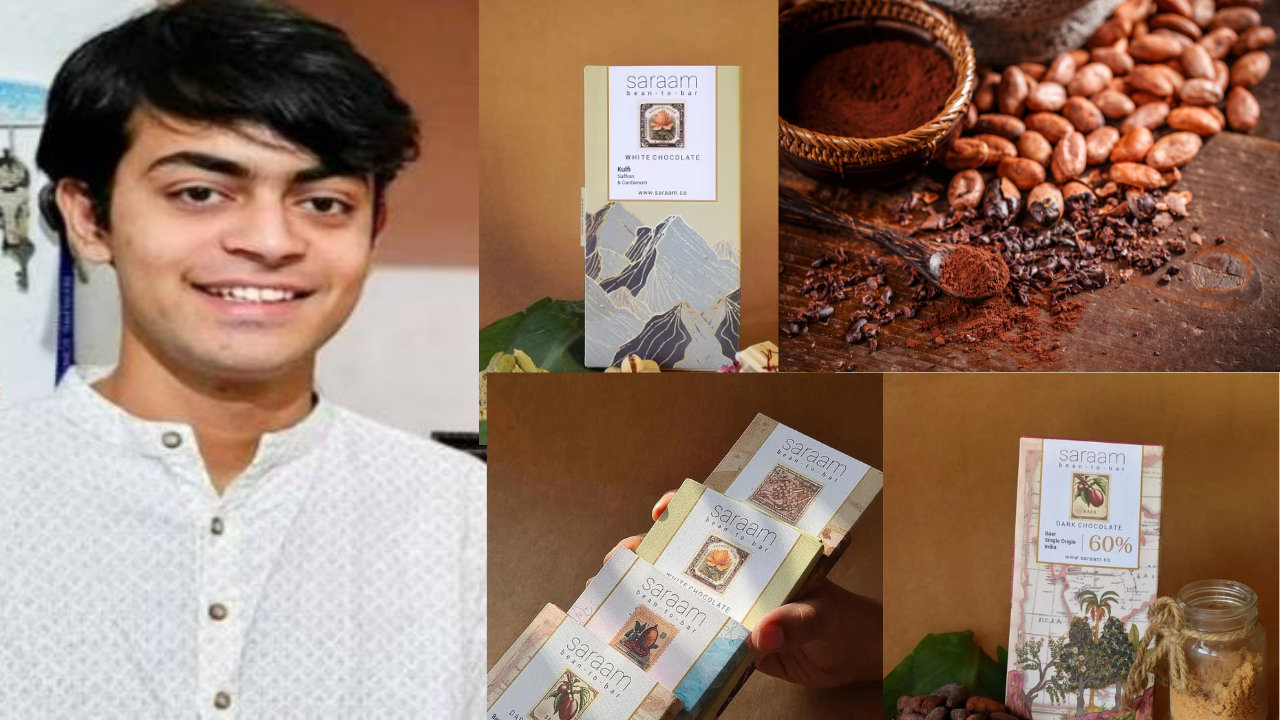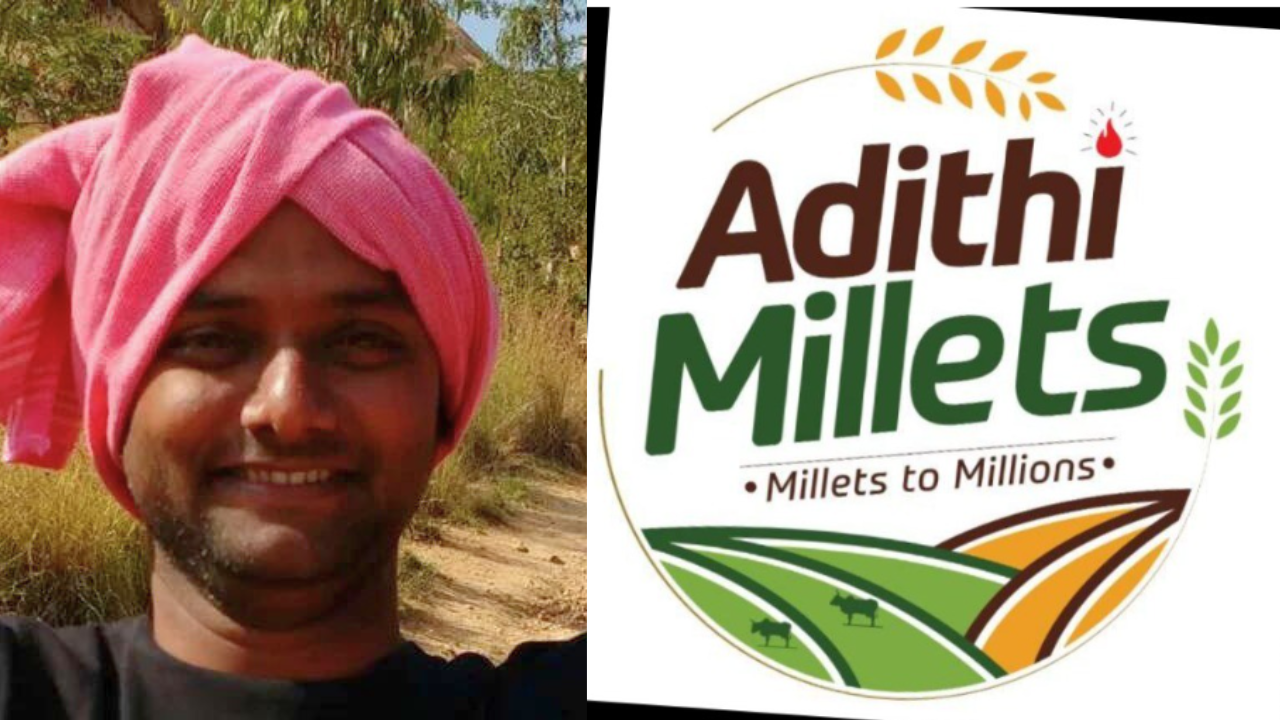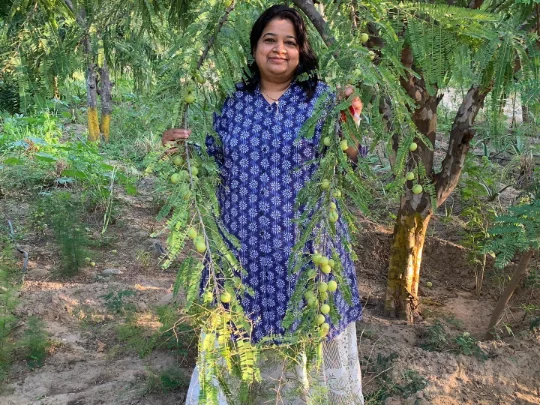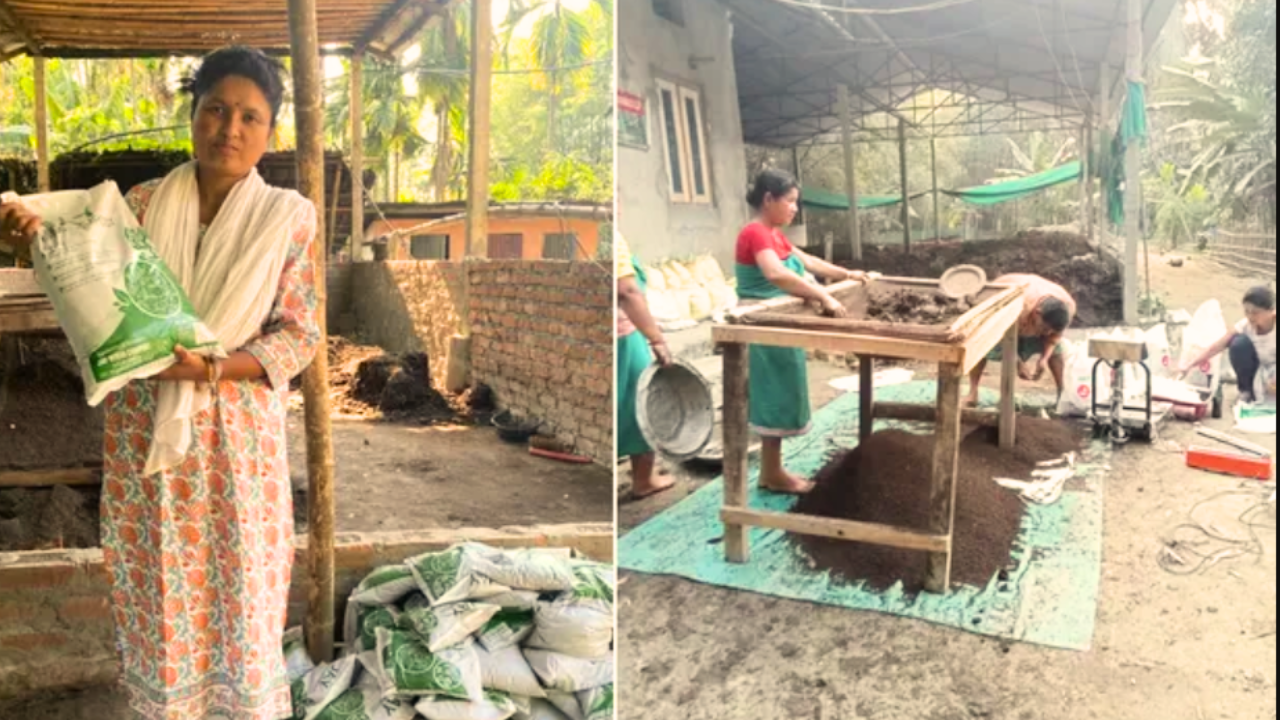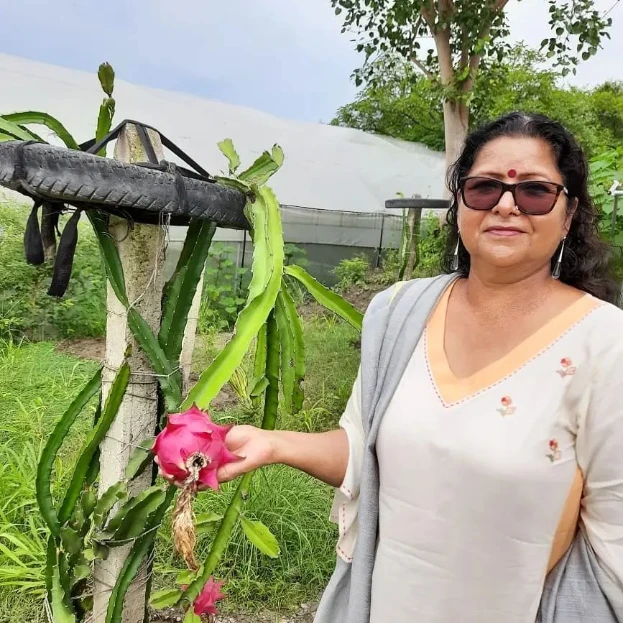Meet Dr. Srinivasa Rao Madhavaram, a multi-talented individual hailing from Hyderabad. By day, he’s a doctor, and by night, he transforms into a dedicated farmer. He’s found a way to harmoniously juggle both of these careers, and he’s actually quite pleased with his ability to carry out both roles in a single day.
With a degree in internal medicine (MD), he’s cleverly divided his time to strike a balance between his medical profession and his passion for farming. “Between 7 am and 12 pm, you’ll find me at the hospital, and the rest of my day is dedicated to working on the farm,” shares the 36-year-old doctor.
Dr. Rao was born into a family of farmers in Kukatpally, where he observed his grandfather and father putting in hard work in the fields. This upbringing sparked his interest in farming, and he nurtured a dream of pursuing it someday.
In 2016, his life took a pivotal turn when he tasted a dragon fruit for the very first time. Although he wasn’t particularly fond of its taste despite its unique appearance and color, the fruit intrigued him immensely. This curiosity prompted him to delve deeper into learning about it.
His research unveiled the fact that these exotic fruits, typically imported from various countries, were scarcely cultivated in India. Reflecting on his initial experience, he recalls, “The first time I tried it, I wasn’t impressed. Moreover, it was quite pricey. It later dawned on me that the lackluster taste was due to the imported fruit being stored for extended periods, causing it to lose its freshness. This got me thinking about why we couldn’t grow it here in India.”
Recognizing a gap in the market for cultivating exotic dragon fruits, he decided to take on the challenge of growing them using organic methods.
Fast forward to 2022, and he now cultivates more than 45 varieties of dragon fruits on an expansive 30-acre farm in Sangareddy, Telangana. But his efforts don’t stop there. Dr. Rao also engages in research and development focused on dragon fruits. Additionally, he generously imparts free training to farmers from all corners of the country who are interested in venturing into the realm of exotic fruit farming.
Dragon Fruit’s potential
He mentions that dragon fruit isn’t just delicious, but it’s also incredibly good for you. He explains that these fruits are considered superfoods due to their high levels of antioxidants and vitamin C, while still being low in calories. Even though they’re sweet, even people with diabetes can enjoy them.
Moreover, the seeds of these fruits contain omega-3 and omega-6 fatty acids, and the dragon fruit has way more sodium, potassium, magnesium, and calcium compared to mangoes. It’s even got four times more iron than mangoes.
Back in 2016, while Dr. Rao was researching dragon fruit and its potential for cultivation, he realized that only a handful of farmers were growing it in India. These farmers were only cultivating two basic types of the fruit, while there are actually more than a hundred varieties out there. Recognizing the great qualities and potential of the fruit, he purchased about 1,000 young plants from farmers in different Indian states like Maharashtra and West Bengal. He planted these on his land. Unfortunately, this initial attempt didn’t go well, as most of the plants didn’t survive.
“At that time, I had no real know-how or training when it came to growing such exotic fruit. The plants struggled to survive mostly due to the poor quality of the young plants, as we didn’t have access to high-quality ones in our country,” he explains.
This drove Dr. Rao to travel across India, meeting with fellow farmers and experts, all in an effort to educate himself about dragon fruit cultivation. “Many people told me that cultivating dragon fruits in Hyderabad would be tough. But I wasn’t willing to give up. Through my journeys, I also realized that folks in India didn’t know much about this fruit or how to take care of it,” he says. He then embarked on trips to different countries where dragon fruit is cultivated on a large scale.
He visited around 13 countries, including places like Vietnam, Taiwan, and the Philippines, to learn more about dragon fruit and master the art of cultivating it. “I received training from an institute in Vietnam and stayed with a dragon fruit farmer to grasp the techniques,” he says.
Additionally, he learned techniques such as grafting and hybridizing plants from experts in Taiwan, helping him develop better varieties of the fruit.
Cultivating dragon fruit
Upon returning to India in 2017, Dr. Rao put into action the knowledge he had gained from his various experiences. He applied these insights on his farmland located near Hyderabad, specifically in Sangareddy. Collaborating with IIHR Tumkur, he managed to produce high-quality saplings, which he then planted on his 30-acre farm named Deccan Exotics.
“From that point on, there was no looking back,” Dr. Rao reflects. “Currently, we’re harvesting about 10 tonnes per acre, with an annual yield totaling around 100 tonnes.”
He goes on to explain, “The ideal period for planting dragon fruit in India is from March to July. Once the plant matures, it starts bearing fruit from June to October, particularly during the rainy season, which might vary in different regions. Surprisingly, a single dragon fruit plant can continue producing fruits for up to 20 years and requires minimal upkeep.”
At present, his land is home to over 60,000 dragon fruit plants. He even operates a nursery where he nurtures top-quality dragon fruit saplings. Additionally, he has established a research center and a training facility right within his farm.
“Research and development play a crucial role when it comes to these fruits, as it’s essential to educate farmers across the nation about their cultivation. Furthermore, research was necessary to create more efficient varieties and superior saplings,” he explains. Dr. Rao further elaborates that they’ve developed their own germplasm and introduced a couple of new dragon fruit varieties.
“One of these new varieties we’ve bred grows three times faster than traditional types and is adaptable to harsh weather conditions. We’ve successfully tested its growth in various parts of the country, and it’s called the Deccan Pink,” he adds.
Giving farmers the tools to succeed
In 2017, Dr. Rao established Deccan Exotics as a farmer producer organization (FPO) with the goal of supporting and empowering farmers who are interested in growing unique fruits, specifically dragon fruits.
Dr. Rao explains, “Through the FPO, I provide free training to farmers from across the country about all aspects of dragon fruit cultivation, from planting and nurturing to harvesting and selling in the market. Farmers can either visit our farm or consult with us through audio or video calls. We also offer high-quality saplings.” He mentions that each sapling costs around Rs 60 to Rs 70, which is roughly equivalent to the price of one fruit.
“We also assist these farmers by purchasing their produce,” he adds.
According to Dr. Rao, he has trained more than 5,000 farmers from different parts of the country. Among them, over 1,000 are actively engaged in dragon fruit cultivation.
Jaimini Krishna, a 30-year-old software engineer from Bihar, decided to transition to agriculture. He received training from Deccan Exotics to cultivate dragon fruits in his village in Kishanganj. Jaimini shares, “I visited their farm in 2020 and spent a whole day learning the ins and outs of dragon fruit farming. I also purchased saplings from them.” He planted these saplings on his 2.5-acre land, and they have been yielding a good harvest since then.
Jaimini adds, “Dr. Rao is always there to help over the phone, and I’ve reached out to him whenever I had questions. It’s been about a year and a half now. We’re about to have our sixth harvest, and we’re expecting a yield of around 1.5 tonnes per acre.” He mentions that he sells his dragon fruits for approximately Rs 180 to Rs 300 per kilogram.
Dr. Rao emphasizes, “There’s significant potential for dragon fruit cultivation in India that hasn’t been fully explored. Even the central government is now promoting its growth. However, the main challenge is the lack of quality saplings for farmers. It’s crucial to ensure you’re getting high-quality saplings before embarking on farming.”
Currently, Deccan Exotics has an annual turnover of about Rs 1.5 crore. In addition to their research and training efforts, they also produce value-added items like jams, jellies, and ice cream on a smaller scale.
Dr. Rao shares that Deccan Exotics is planning to expand their research and training initiatives to include other unique fruits like avocados.


